Are you a newcomer to Canada? Homeownership is a goal the majority of Canadians strive towards. If Canada is a place you want to call home over the long-term, buying a home here makes a lot of sense. However, buying a home in Canada can be confusing and intimidating as a newcomer to the country, but it doesn’t have to be.
Here are the three most important factors lenders consider when considering whether to lend to someone who’s new to Canada to buy a home.
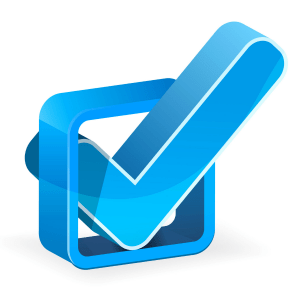
Income
Income is the first factor mortgage lenders consider. How much money do you earn? The easiest way to have Canadian income is by getting a full-time salaried position in Canada. However, this can be challenging as a newcomer to Canada if Canadian employers won’t recognize your foreign education and experience. As such, you may go back to school for retraining. If you’re a full-time student, it can be challenging to obtain a mortgage in Canada without any Canadian income. However, once you graduate and land a full-time permanent job in Canada, you shouldn’t have any issue applying for a mortgage.
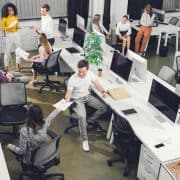

If you’re self-employed or your business is incorporated, most Canadian lenders will want to see you declaring your income on your Canadian tax return for at least two consecutive years. As soon as you decide that Canada is the place you want to call home, you should speak to an accountant about declaring your business’s income in Canada. You may still be able to obtain a mortgage if you’re not declaring your income in Canada, however, you’ll most likely have to obtain a mortgage from a private lender with higher mortgage rates and may have to pay a fee.
Down Payment
The other important factor Canadian lenders care about is your down payment. Your down payment is the money you’re required to pay up front towards the purchase of a home in order to secure a mortgage.
If you’re making a down payment of less than 20 percent of a property’s purchase, you’ll be required to pay mortgage default insurance. This is insurance that protects the lender in case you default (fail to repay) the mortgage. The cost of mortgage default insurance is usually added on top of your mortgage balance and paid along with your regular mortgage payments. At first, mortgage default insurance may seem like a cash grab, but it’s actually a good thing. Since your mortgage is fully guaranteed, you’re usually able to get access to the best available mortgage rates on the market.
There are three mortgage default insurers in Canada:
Canada Mortgage and Housing Corporation (CMHC)
Canada Mortgage and Housing Corporation (CMHC)
Genworth
Genworth
Canada Guaranty
Canada Guaranty
The insurers have programs specifically geared towards newcomers to Canada. For example, Genworth has its New to Canada program, designed to meet the mortgage insurance needs of those new to the country.
As a newcomer to Canadian, you may have most of your financial assets overseas. This can pose a challenge if you plan to use some or all of that money towards your down payment. You’ll want to move the money you plan to use towards a down payment to purchase a Canadian home into a Canadian bank account sooner rather than later. Lenders may ask you about the source of funds, so be prepared to provide proof.
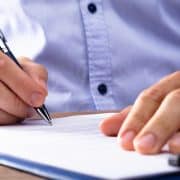
Your Canadian Credit History and Score
Unless you can afford to pay for a home in cash, you’ll need to take out a mortgage. Lenders consider several factors when approving you for a mortgage. One of them is your credit. Your credit consists of three main parts:
Your Credit History
Credit Report
Credit Score
Credit History
Your credit history is a summary of anytime you’ve borrowed money in Canada. This section may be empty since you’re a newcomer to Canada.
Credit Report
Your credit report includes much more information including your Canadian credit history, Canadian address history and anytime you’ve applied for credit in Canada. Your credit report may again be pretty empty as a newcomer to Canada.
Credit Score
Lastly is your credit score, the three digit number that lenders care so much about. There are two credit bureaus in Canada: Equifax and TransUnion. Each has its own credit score. Some lenders use Equifax and others use TransUnion. Your credit score typically ranges between 300 and 900. The higher your credit score, the better. A high credit score indicates that you’re less of a credit risk to the lender. Generally, you need a credit score above 680 to qualify for the best mortgage rates.
Credit history is very important to Canadian lenders. Your first step should be to speak to a lender or mortgage broker and find out about your credit. As a newcomer to Canada, you may not have credit history Canadian lenders recognize. If you’re coming from the U.S., this probably won’t be as much of an issue, but if you’re coming from any other country in the world, that’s when it can pose more of a challenge.
If your lack of credit history is posing a challenge for you getting approved for a mortgage, then you’ll want to come up with a plan with the lender you’d like to work with. If owning a home is important to you, you’ll want to put this plan into action right away.
Here are some things you can do to help establish a good credit history when you first arrive in Canada.
- Apply for a credit card
Apply for a Canadian credit card and use it responsibly. This means paying off your balance in full each and every month and keeping your balance below 50 percent of your available credit. If you don’t qualify for a conventional credit card, apply for a secured credit card. This is one where you’ll be required to make a security deposit up front.
Apply for a Canadian credit card and use it responsibly. This means paying off your balance in full each and every month and keeping your balance below 50 percent of your available credit. If you don’t qualify for a conventional credit card, apply for a secured credit card. This is one where you’ll be required to make a security deposit up front.
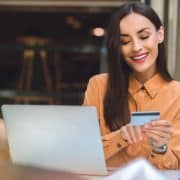
- Follow the 2/2/2 Rule
Aim to have at least two credit accounts on your credit report for two years with a credit limit of at least $2,000. This will go a long way in helping you establish a credit score in Canada and getting your mortgage application approved.
- Open a Bank Account
Open a Canadian bank account and have your paycheques from work deposited here. Use this bank account to pay your Canadian bills. By doing this, it will help establish your Canadian financial history and prove that you’re financially responsible and plan to stay in Canada long-term.


